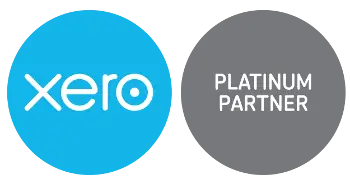Minimise Tax, Maximise Savings
End Of Financial Year- Time to act before 30th June 2017
Now is the time to make any last minute adjustments to reduce your tax bill and maximise your long-term savings.
Pay expenses, delay income
Timing is everything and seeing we are so close to 30th June, it’s easier to look at things we can do now, that will save you tax.
Here’s how!
- Start by looking for ways to bring forward tax deductible expenses to the current financial year and delay income until July. This is especially the case if your taxable income is likely to be higher this year than next. And tax deferred is always tax saved.
- If you are a small business, you may be able to pre-pay 12 months’ worth of expenses like rent, interest on a loan or pre-pay 12 months’ of insurance premiums and claim the full deduction in this year’s return.
- If you are on the farm and need to top up the fuel tanks, do it before 30 June.
- You might consider pre-paying membership fees for professional organisations and subscriptions for work-related publications.
Instant asset write-off
There has been some confusion over this, even though it has been available for a few years now.
If you are a small business owner with turnover below $10 million and you have been tossing up whether to invest in new equipment, get cracking. Businesses with a turnover below $10 million can claim an immediate deduction for the cost of assets up to $20,000. This is not limited to just one asset, any asset costing up to $20,000 may be eligible.
From July 16, the income tax rate for small companies carrying on business, has been reduced to 27.5 per cent and over the next 10 years to 2027 will reduce to 25%, so it makes even more sense to delay income where possible.
Take advantage of government contributions
In the 2016/17 financial year, adding to your super from after-tax money, you may be entitled to a government co-contribution worth up to $500.
To be eligible you need to earn less than $51,021 in the 2016/17 financial year and be aged below 71 at 30 June 2017.
The maximum co-contribution of $500 is available if you earn less than $36,021 in the 2016/17 financial year and if you have made a contribution yourself of at least $1,000. The co-contribution steadily reduces as your income rises and until it reaches zero at an annual income of $51,021.
Review your Investment Portfolio
You may be sitting on some paper losses from shares or other investments. This could be a good time to sell some of your poor performers to offset against capital gains made on the sale of other investments over the past 12 months.
Where possible, it makes sense to sell investments held for at least 12 months to qualify for the 50 per cent capital gains tax discount.
Claim rental property deductions
Whether you are a new landlord or an old hand, make sure to claim all allowable rental property deductions.
You can claim an immediate deduction for interest on your investment loan, repair and maintenance and tenancy costs such as the preparation of a lease or eviction.
You can also claim some expenses over a number of years, such as, the cost of depreciating assets, structural improvements and borrowing costs such as stamp duty and loan fees.
Speak to a Skybridge Advisor now to set up a registered appraiser to maximize your rental property depreciation, and to ensure you are eligible.
Tax Effective Structure
There are many advantages and disadvantages with regards to trading with one structure verses another, too complex to explain here, Discretionary Family Trusts, Companies, Partnerships, Partnerships of Trusts, Sole Traders just to name a few.
Depending on your circumstances, a personal review of your business structure may end up saving you $000’s in unnecessary taxes and there is also the asset protection as an important aspect as well.
Speak to one of our advisors today to set up your business structure right today.
Top up your super
After-tax or non concessional super contributions are made from money you have already paid income tax on.
It could be advantageous to invest in your super using after-tax contributions rather than investing in assets held outside super. This is because money you invest in your super from your after-tax income isn’t subject to contributions tax (15%). In addition, any investment earnings within your super are taxed at a maximum of 15%, which may be below your personal tax rate.
The annual limit for after-tax contributions is currently $180,000 and in certain circumstances you may be able to contribute up to three times this amount per year. However, the annual limit will fall to $100,000 from 1 July 2017, so you may want to consider making a contribution before the end of this financial year to take advantage of the current higher amount of after-tax contribution you can make.
Do you own your own business premises? Speak to a Skybridge advisor now, you may consider moving your business premises into super and pay rent to your superannuation fund.
With all the changes happening with the government tinkering with the super rules, it’s getting harder and harder to put money into super. However, this strategy may be for you! With great tax savings, asset protection, and boosting contributions into super.
With so much change in the air, it is more important than ever to seek professional guidance from your tax accountant and your financial adviser. Contact us today!



